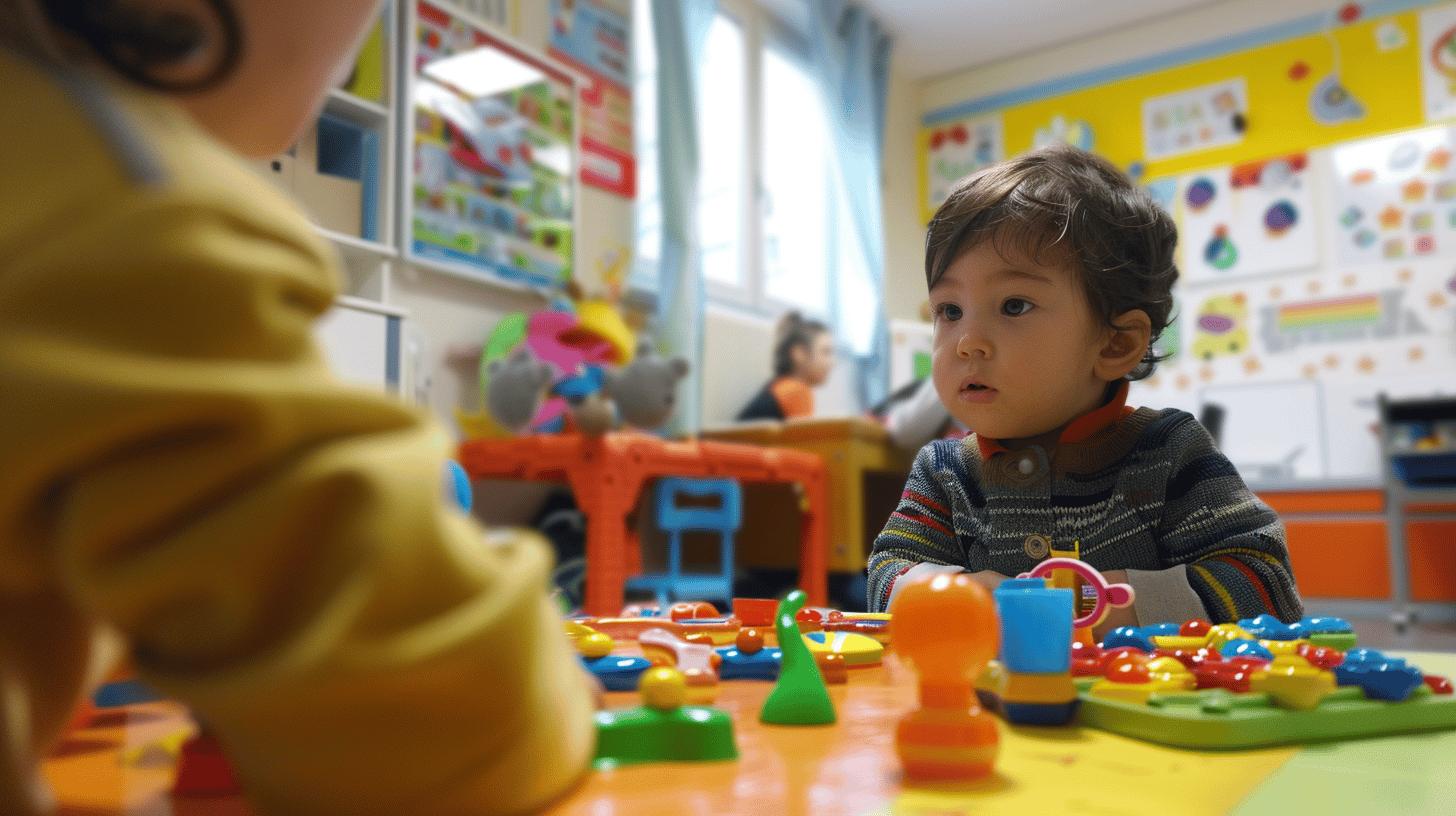Is your child struggling to reach developmental milestones? Developmental challenges affect many families, yet they are often misunderstood or overlooked. This article dives deep into what developmental challenges are, common types, their causes, and, most importantly, effective strategies to overcome them. Understanding these challenges is the first step toward providing your child with the support they need to thrive. Discover expert insights, early signs, and actionable strategies to help your child overcome these hurdles and achieve their full potential. Read on to become an empowered and informed parent.
Understanding Developmental Challenges
Developmental challenges refer to delays or difficulties in achieving age-appropriate milestones across various domains. These domains include physical, cognitive, language, social, and emotional development. When a child struggles to meet these milestones, it may indicate an underlying developmental issue that requires attention and intervention.
Common types of developmental challenges vary widely but often include learning disabilities, speech delays, autism spectrum disorders, attention deficit hyperactivity disorder (ADHD), and intellectual disabilities. Each of these conditions presents unique challenges and requires specific approaches to support a child's growth and development.
- Learning disabilities
- Speech delays
- Autism spectrum disorders
- Attention deficit hyperactivity disorder (ADHD)
- Intellectual disabilities
Identifying developmental challenges early and intervening promptly can significantly impact a child's long-term outcomes. Early diagnosis and support can help mitigate the effects of these challenges, enabling children to reach their full potential. Parents, caregivers, and educators play a crucial role in recognizing early signs and seeking appropriate help.
Causes and Early Signs of Developmental Challenges

Genetic causes play a significant role in developmental challenges. Conditions such as Down syndrome and Fragile X syndrome are examples of genetic factors that affect a child's development. These genetic issues can alter the normal course of development, leading to difficulties in physical, cognitive, and social milestones.
Environmental causes also contribute to developmental challenges. Exposure to toxins during pregnancy, such as alcohol, drugs, or certain medications, can negatively impact fetal development. Additionally, inadequate nutrition and exposure to high levels of stress during early childhood can hinder a child's developmental progress.
Other factors, including premature birth and low birth weight, can cause developmental challenges. Complications during birth, such as lack of oxygen, can also lead to delays in achieving developmental milestones. These factors can affect the brain and other vital systems, leading to long-term developmental issues.
- Delayed milestones
- Difficulty in communication
- Trouble with learning
- Behavioral issues
- Social interaction problems
- Poor motor skills
- Limited emotional expression
Recognizing early signs of developmental challenges is crucial. The sooner these signs are identified, the quicker interventions can be implemented to support the child's development. Early diagnosis allows for timely and appropriate support, which can significantly improve outcomes and enable children to reach their full potential. Parents, caregivers, and educators must be vigilant in observing and addressing these early signs.
Strategies for Overcoming Developmental Challenges
Early intervention programs are crucial in addressing developmental challenges. These programs aim to enhance developmental skills from an early age. By identifying and supporting young children with developmental issues, these programs can significantly improve long-term outcomes. Early intervention helps children develop essential skills, such as communication and motor abilities, which are foundational for future learning and social interactions.
Speech and language therapy is another vital strategy. This therapy focuses on improving communication skills in children facing speech delays or language difficulties. Therapists work with children to enhance their ability to understand and use language effectively. This includes articulation, vocabulary development, and the ability to form sentences. Speech and language therapy can be a game-changer for children struggling with communication.
Occupational and behavioral therapies also play a significant role in overcoming developmental challenges. Occupational therapy helps children develop fine motor skills, sensory processing abilities, and daily living skills. Behavioral therapy, on the other hand, focuses on modifying negative behaviors and reinforcing positive ones. It helps children develop appropriate social behaviors, manage emotions, and improve self-control.
Individualized Education Plans (IEPs) are tailored educational programs designed to meet the unique needs of each child with developmental challenges. IEPs provide customized goals and accommodations to ensure that children receive the support they need in school. These plans are created collaboratively by educators, therapists, and parents to address specific developmental needs and track progress over time.
| Strategy | Description |
|---|---|
| Early Intervention Programs | Enhance developmental skills from an early age. |
| Speech and Language Therapy | Improve communication skills through targeted exercises. |
| Occupational Therapy | Develop fine motor skills and sensory processing abilities. |
| Behavioral Therapy | Modify negative behaviors and reinforce positive ones. |
| Individualized Education Plans (IEPs) | Provide customized educational goals and accommodations. |
Expert Opinions and Case Studies on Developmental Challenges

Experts agree that early diagnosis and intervention are crucial for improving outcomes in children with developmental challenges. Early intervention allows for timely support, which can help mitigate the effects of developmental delays. Professionals emphasize that the sooner a child receives help, the better their chances of reaching age-appropriate milestones and achieving their full potential.
- A child with speech delays improved significantly through early speech therapy.
- An autistic child showed better social skills after participating in a tailored behavioral program.
- A child with ADHD benefited from an Individualized Education Plan (IEP) in school.
- A child with learning disabilities made progress with specialized tutoring and support services.
Personalized approaches have shown to be highly effective in case studies. Children who receive individualized care tailored to their specific needs often demonstrate significant improvements. These case studies highlight the importance of customizing interventions to address each child's unique challenges. By focusing on personalized strategies, children can make strides in their development and gain skills essential for their growth and success.
Resources and Support for Developmental Challenges
Special education services play a pivotal role in supporting children with developmental challenges. These services provide tailored educational plans and accommodations to meet each child's unique needs. Special education professionals work closely with families and educators to create Individualized Education Plans (IEPs) that address specific developmental goals and track progress. By offering specialized instruction and resources, these services help ensure that children with developmental challenges receive the support they need to succeed academically and socially.
Support groups and organizations dedicated to developmental challenges offer valuable resources for both parents and caregivers. These groups provide a platform for sharing experiences, advice, and emotional support. Organizations such as the Autism Society and the Learning Disabilities Association focus on raising awareness, offering educational materials, and advocating for individuals with developmental challenges. By connecting with these groups, families can access a wealth of information and find a community that understands their journey.
- Special education services
- Support groups for parents and caregivers
- Autism Society
- Learning Disabilities Association
- Early Intervention Programs
- Individualized Education Plans (IEPs)
Parent education and support programs are crucial in empowering parents with the knowledge and skills needed to manage developmental challenges. These programs offer training on various strategies, from behavior management to effective communication techniques. By participating in these programs, parents can better understand their child's needs and learn how to advocate for them effectively. Empowered parents are better equipped to navigate the complexities of developmental challenges, ensuring their children receive the best possible support and interventions.
Final Words
In the action of understanding developmental challenges, we explored the different types such as learning disabilities and speech delays. We highlighted the causes and early signs, emphasizing the importance of early recognition. Solutions like early intervention programs and therapies were discussed to address these issues effectively. Expert opinions and case studies underlined the success of personalized approaches. Finally, resources and support services were provided to empower parents and caregivers.
Recognizing a developmental challenge early can make a significant difference. With the right strategies and support, navigating these challenges becomes more manageable. Stay informed and proactive to foster positive developmental outcomes.
FAQ
What is a developmental challenge?
A developmental challenge refers to delays or difficulties in achieving age-appropriate milestones across physical, cognitive, language, social, and emotional domains.
What is an example of a developmental disability?
Examples of developmental disabilities include autism spectrum disorders (ASD), cerebral palsy, Down syndrome, and learning disabilities.
What are the challenges of development?
Challenges of development can involve delayed milestones, difficulty communicating, learning obstacles, behavioral issues, and social interaction problems.
What is an example of a developmental issue?
An example of a developmental issue is a speech delay, where a child takes longer than typical to start talking or uses fewer words and sentences than peers.
What are developmental challenges in adolescence?
Developmental challenges in adolescence can include struggles with identity formation, emotional regulation, academic pressures, and social relationships.
What are developmental challenges in early childhood?
Developmental challenges in early childhood often encompass speech and language delays, social and emotional difficulties, autism spectrum disorders, and motor skill delays.
What are examples of concerns about child development?
Concerns about child development may include delayed speech, difficulty in social interactions, learning disabilities, and behavioral issues such as hyperactivity or inattention.
What is the importance of identifying developmental challenges early?
Early identification of developmental challenges is crucial for timely intervention, which can significantly improve outcomes and help children achieve their full potential.
What kinds of resources are available for developmental challenges?
Resources include special education services, support groups for parents, organizations dedicated to specific developmental issues, early intervention programs, speech and occupational therapy, and Individualized Education Plans (IEPs).


